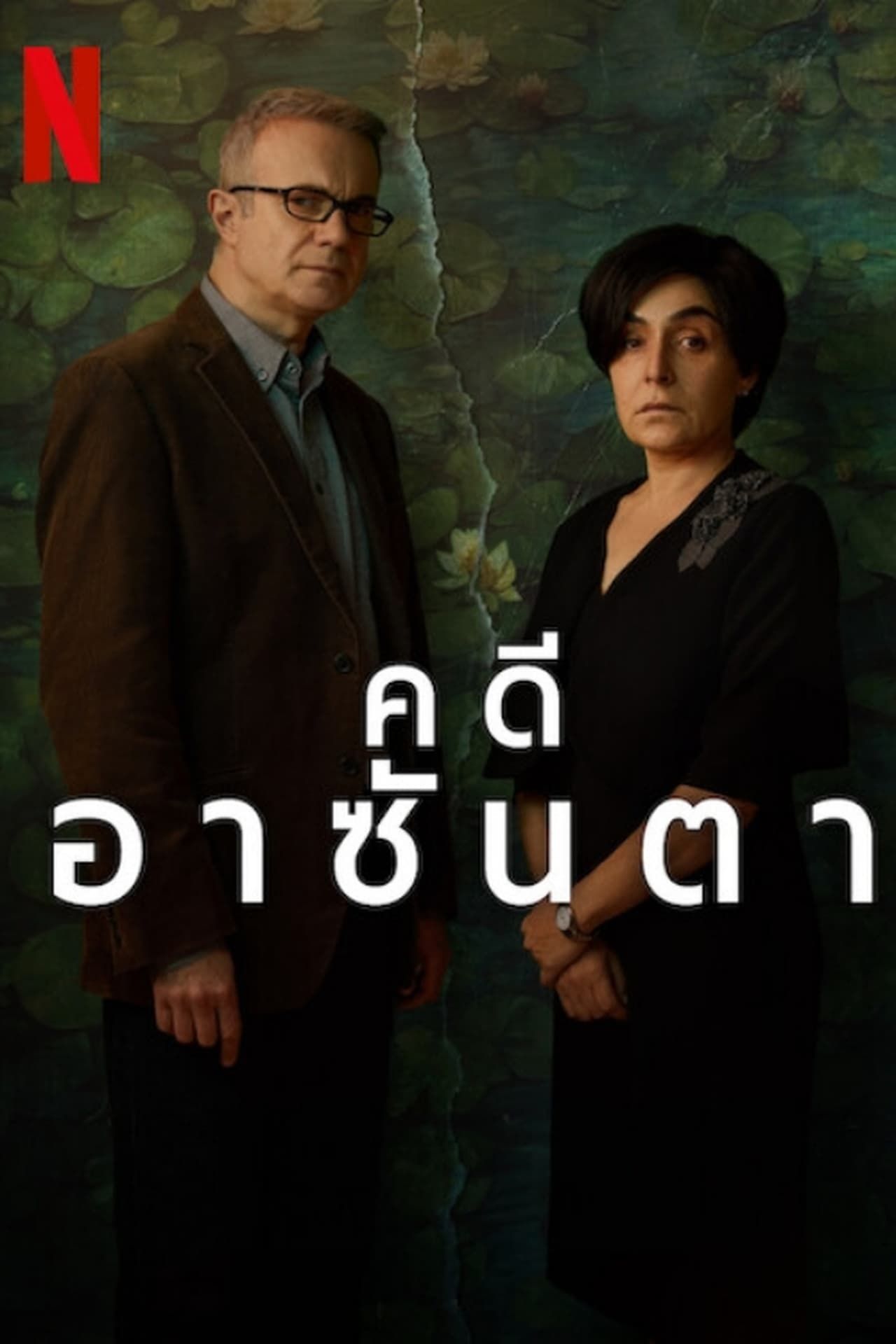The Asunta Case has captured global attention due to its intricate legal battles, emotional undertones, and the profound societal implications it carries. This case, which revolves around the custody and welfare of a young girl named Asunta, has become a focal point for discussions on child rights, international adoption laws, and ethical dilemmas. As the case unfolds, it raises critical questions about the intersection of law, morality, and human compassion. In this article, we will delve deep into the Asunta Case, exploring its background, legal complexities, and the broader lessons it offers for society.
The Asunta Case is not just a legal matter; it is a story that touches the core of human emotions and societal values. It highlights the challenges faced by children in cross-border adoption cases and underscores the importance of safeguarding their rights. By examining the details of this case, we aim to provide readers with a clear understanding of its significance and the lessons it imparts.
In the following sections, we will explore the origins of the Asunta Case, the key players involved, the legal proceedings, and the broader implications for child welfare and international adoption laws. This comprehensive analysis will not only shed light on the specifics of the case but also offer insights into how similar situations can be handled in the future. Let us embark on this journey to uncover the truth behind one of the most talked-about legal dramas of our time.
Read also:Channing Tatum Teeth Before And After Transformation Smile Secrets And Dental Health Tips
Table of Contents
- Biography of Asunta
- Key Players in the Asunta Case
- Legal Proceedings and Timeline
- International Adoption Laws and Challenges
- Ethical Dilemmas in the Asunta Case
- The Role of Child Rights in the Case
- Public Reaction and Media Coverage
- Legal Precedents Set by the Case
- Lessons Learned and Recommendations
- Conclusion and Call to Action
Biography of Asunta
Asunta is a young girl whose life became the center of a high-profile legal battle spanning multiple countries. Her story began in a small town in Spain, where she was born to a family facing significant challenges. Below is a table summarizing her personal information and key details about her life:
| Full Name | Asunta Basterra Porto |
|---|---|
| Date of Birth | June 15, 2009 |
| Place of Birth | Santiago de Compostela, Spain |
| Parents | Rosalia Porto (Biological Mother), Unknown Father |
| Adoptive Parents | Alfonso Basterra and Mónica Porto (Spain) |
Key Players in the Asunta Case
The Asunta Case involves several key individuals and organizations whose actions and decisions have shaped its trajectory. Understanding their roles is essential to comprehending the complexities of the case.
Biological Mother: Rosalia Porto
Rosalia Porto, Asunta's biological mother, has been a central figure in the case. Her struggles with personal issues and legal challenges have been widely documented. Rosalia's actions, including her initial decision to give Asunta up for adoption, have been scrutinized by both the legal system and the public.
Adoptive Parents: Alfonso Basterra and Mónica Porto
Alfonso Basterra and Mónica Porto, a couple from Spain, were granted custody of Asunta through an adoption process. Their commitment to providing a loving and stable home for Asunta has been a focal point of the case. However, their legal battle to retain custody has been fraught with challenges.
Legal Authorities and Courts
The courts and legal authorities in Spain and other countries involved have played a pivotal role in determining the outcome of the Asunta Case. Their decisions have been influenced by international adoption laws, child welfare policies, and ethical considerations.
Legal Proceedings and Timeline
The Asunta Case has been marked by a series of legal proceedings that span several years. Below is a timeline of key events that have shaped the case:
Read also:Tishomingo Exploring The Heart Of Oklahomas Rich Heritage
- 2009: Asunta is born in Santiago de Compostela, Spain.
- 2010: Rosalia Porto places Asunta up for adoption due to personal and financial difficulties.
- 2012: Alfonso Basterra and Mónica Porto are granted legal custody of Asunta.
- 2015: Legal disputes arise as Rosalia Porto seeks to regain custody of Asunta.
- 2017: The case gains international attention, with courts in multiple countries involved.
- 2020: A landmark ruling is issued, emphasizing the importance of the child's best interests.
Key Legal Arguments
The legal proceedings in the Asunta Case have revolved around several critical arguments, including:
- The rights of biological parents versus adoptive parents.
- The best interests of the child as a guiding principle in custody disputes.
- The role of international adoption laws in resolving cross-border custody cases.
International Adoption Laws and Challenges
The Asunta Case highlights the complexities and challenges of international adoption, particularly in cases involving custody disputes. Below, we explore the key aspects of international adoption laws and their implications for cases like Asunta's.
Hague Adoption Convention
The Hague Adoption Convention is an international treaty that establishes safeguards to ensure that intercountry adoptions are in the best interests of the child. It provides a framework for cooperation between countries to prevent child trafficking and ensure ethical adoption practices.
Challenges in Cross-Border Custody Cases
Cross-border custody cases, such as the Asunta Case, often face challenges due to differences in legal systems, cultural norms, and child welfare policies. These challenges can lead to prolonged legal battles and emotional distress for the child and families involved.
Ethical Dilemmas in the Asunta Case
The Asunta Case raises several ethical dilemmas that have sparked debates among legal experts, child welfare advocates, and the public. These dilemmas include:
- Whether the biological mother's rights should take precedence over the child's established relationship with adoptive parents.
- The role of courts in determining the child's best interests amidst conflicting claims from different parties.
- The potential impact of media coverage on the child's emotional well-being.
The Role of Child Rights in the Case
At the heart of the Asunta Case is the issue of child rights. International conventions, such as the United Nations Convention on the Rights of the Child (UNCRC), emphasize the importance of safeguarding children's rights in all circumstances. Key principles include:
- The right to a safe and nurturing environment.
- The right to be heard and have their views considered in legal proceedings.
- The right to maintain relationships with caregivers who provide stability and love.
Impact on Child Welfare Policies
The Asunta Case has prompted a reevaluation of child welfare policies in several countries. It has highlighted the need for clear guidelines and cooperation in cross-border adoption and custody cases to ensure the child's best interests are prioritized.
Public Reaction and Media Coverage
The Asunta Case has garnered significant public attention, with media coverage playing a crucial role in shaping public perception. The case has sparked debates on social media, with individuals expressing their opinions on the rights of biological and adoptive parents.
Role of Media in Shaping Public Opinion
Media coverage of the Asunta Case has been both a blessing and a curse. While it has raised awareness about the complexities of international adoption and child rights, it has also exposed the child and families involved to intense scrutiny and pressure.
Legal Precedents Set by the Case
The Asunta Case has set important legal precedents that will influence future cases involving international adoption and custody disputes. These precedents include:
- The prioritization of the child's best interests over other considerations.
- The need for clear guidelines and cooperation between countries in cross-border cases.
- The importance of ethical considerations in adoption and custody decisions.
Lessons Learned and Recommendations
The Asunta Case offers several valuable lessons for policymakers, legal professionals, and society as a whole. These lessons include:
- The need for comprehensive child welfare policies that address the complexities of international adoption.
- The importance of prioritizing the child's emotional and psychological well-being in legal proceedings.
- The role of ethical considerations in ensuring fair and just outcomes in custody disputes.
Recommendations for Future Cases
To prevent similar challenges in the future, it is recommended that:
- Countries strengthen their cooperation under international treaties like the Hague Adoption Convention.
- Legal systems adopt clear guidelines for determining the best interests of the child in custody disputes.
- Media outlets exercise caution and sensitivity when reporting on cases involving children.
Conclusion and Call to Action
The Asunta Case serves as a powerful reminder of the complexities and challenges involved in international adoption and custody disputes. It underscores the importance of safeguarding children's rights and prioritizing their best interests in all circumstances. By learning from this case, we can work towards creating a more just and compassionate system for children and families worldwide.
We encourage readers to share their thoughts and insights on the Asunta Case in the comments section below. If you found this article informative, please consider sharing it with others or exploring more content on our website related to child rights and legal issues.

